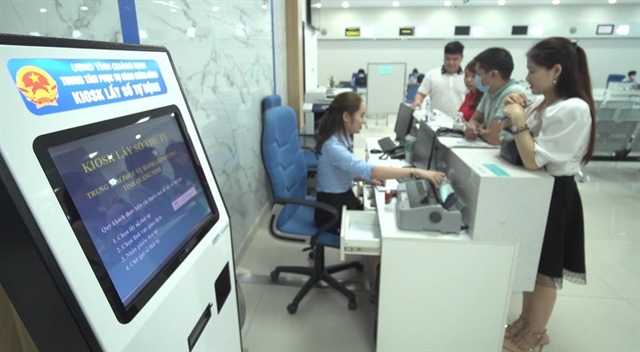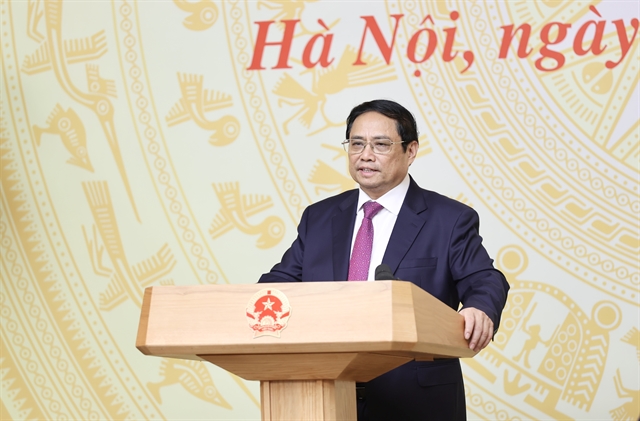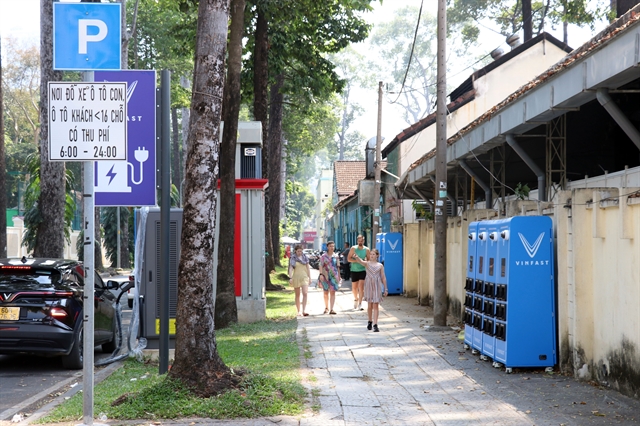 Society
Society


|
| Quảng Ninh Provincial Public Administration Centre. — VNA/VNS Photo |
HÀ NỘI — Prime Minister Phạm Minh Chính on Wednesday presided over the fourth meeting of the Steering Committee for Administrative Reforms, emphasising the importance of this strategic task as an investment for growth.
Multiple solutions have been put forward for the progress of administrative reforms and digital transformation, which has created a positive impact on the awareness and action among authorities, he said.
Reports revealed that ministries have simplified nearly 2,200 business-related regulations in 175 legal documents.
The PM has also approved the simplification of more than 1,100 regulations of 10 State agencies and ministries. These departments have also updated more than 17,800 regulations relating to business.
The quality of online public services has witnessed improvement with more than 4,400 services provided on the National Public Service Portal.
The National Single Window for the ASEAN Single Window offers 250 services online out of the total 261 from 13 ministries and departments, with the participation of more than 55,000 enterprises.
More than 79.5 million citizen identification cards with electronic chips have been issued, alongside six million accounts activated on the e-identification app VNeID, which integrates 21 essential public services on the online platform out of the total 25. Authorities are also working to eradicate unverified SIM cards.
The Satisfaction Index of Public Administrative Services (SIPAS) and Public Administration Reform Index (PAR INDEX) also reached over 80 per cent in 2022.
PM Chính noted that there are still shortcomings in administrative reforms, such as the slow processing of legal documents to remove obstacles in policies, frameworks and business regulations, overlapping administrative procedures, and the low engagement of associations, firms and the people in the reforms.
The usage rate of online public services remains modest at 57.8 per cent, while the rate of overdue processing dossiers is nearly 34 per cent. There is also a lack of synchronisation among the administrative IT systems.
Meanwhile, the SIPAS and PAR INDEX were lower than in 2021, which respectively decreased from 87.16 per cent to 80.8 per cent, and from approximately 86 per cent to 84 per cent.
PM Chính said: “These are the lessons for improvement and realising the shortcomings in administrative reforms and procedures.
“It is also about the importance of the leaders in management, implementation, supervision and addressing issues in a prompt and effective manner.”

|
| Prime Minister Phạm Minh Chính presides over the meeting on Wednesday. — VNA/VNS Photo Dương Giang |
Regarding the tasks for the future, the PM asked members of the Steering Committee to continue the comprehensive and stringent implementation of its 2023 plan, which includes simplifying business regulations, level-based handling of administrative procedures, and consultation with businesses and associations.
PM Chính also asked ministries and departments to accelerate the review and implementation of 19 specific resolutions on simplifying administrative procedures and paperwork relating to population management, with the goal to complete in June this year.
“It is urgent to propose the investment of the digital infrastructure and system to handle administrative procedures, and complete the process for data integration and connection, as well as administrative procedure results on the national public service portal within May 2023,” he added.
The government leader also said that ministries, departments and localities have to base on the 2022 SIPAS and PAR INDEX to identify the strengths, weaknesses and responsibilities of each organisation and individual to come up with effective solutions.
He required that they must strive for SIPAS to reach 85 per cent in 2023 and 95 per cent by 2025; the rate of dossiers processed on time to reach over 90 per cent; and the percentage of the total population using online public services to reach at least 50 per cent by the end of this year.
Regarding the People’s Committees of provinces and cities under the central government, PM Chính required that a proposal be submitted to the local People’s Council, which will reduce or exempt the charges for online public services to encourage people’s engagement.
Guidelines will also be developed to provide training for officials in digitalising dossiers and administrative procedure results, especially at the commune level.
Quảng Ninh ranks first
Quảng Ninh Province continues to rank first in the SIPAS and PAR INDEX in 2022, as announced in the meeting of the Steering Committee for Administrative Reforms.
Quảng Ninh achieved 87.59 per cent in SIPAS in 2022, the fourth time the province consecutively ranks first in this index.
It is followed by Thái Nguyên, Cà Mau, Bình Dương and Thanh Hóa.
With 90.1 points, Quảng Ninh is also at the lead in the 2022 PAR INDEX, ahead of Hải Phòng, Hà Nội, Bắc Giang and Đà Nẵng.
Quảng Ninh also tops the ranking of the Provincial Competitiveness Index (PCI), as announced by the Vietnam Chamber of Commerce and Industry (VCCI), as well as the Provincial Governance and Public Administration Performance Index (PAPI) by the United Nations Development Programme (UNDP).
This means Quảng Ninh has been consecutively placed first on the PCI ranking for the sixth time, and on PAPI for the second time during its 12-year participation in the survey. — VNS




